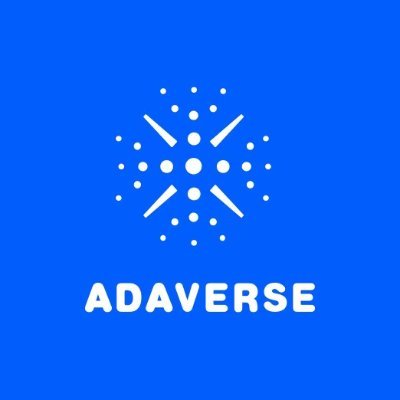What could the rising DID bring to Web3 beyond Worldcoin?
Author: Adaverse Asia
Recently, "Worldcoin," a cryptocurrency company founded by OpenAI CEO Sam Altman, has attracted widespread attention both within and outside the industry.
At the same time, Worldcoin's allowance for other organizations to use its iris scanning and authentication technology has led to increasing regulatory pressure regarding privacy security from various countries, with reports of investigations or business suspensions emerging in multiple nations, making its development prospects suddenly unclear.
The DID Wave Behind Worldcoin
In fact, the rise of Worldcoin essentially reflects the growing importance of the DID track—DID is widely regarded as the core infrastructure of Web3, allowing individuals to regain control over their privacy rights and data rights.
In traditional account systems, current internet giants hold the privacy and data that should belong to users, while they engage in financing, IPOs, and other commercial activities, leaving users, as contributors, without the returns they deserve.
DID can provide users in the blockchain world with corresponding identities and utilize technologies like blockchain to ensure that digital identities are truly owned and controlled by individual users, returning personal privacy rights and data rights to everyone, no longer held by internet giants for profit.
Most importantly, DID can build a native identity system for Web3, serving as the identity credential in a decentralized society of the future, and can further expand the boundaries of Web3 innovation, acting as a core support for broader Web3 application scenario innovations beyond existing tracks like DeFi, NFT, and GameFi.
Gavin Wood once wrote in "Why We Need Web3": "Web3 is a set of inclusive protocols that provide application developers with a new way to build programs." From this perspective, DID acts as the underlying driving protocol for decentralized credit computation and identity generation in the Web3 network, creating a transparent, scalable, and open individual identity recognition system, thus becoming an important infrastructure in the Web3 network.
Especially for users in underdeveloped regions such as Africa, Asia, and Latin America, DID represents a natural demand—most third-world countries and regions lack mature and usable identity systems, making it difficult to widely adopt financial, entertainment, and social Web2 tools.
DID, utilizing blockchain technology, can enable digital identities to be owned and controlled by "unbanked" users in these underdeveloped regions at low cost and with convenience, allowing them to enjoy a range of services in finance, entertainment, etc., without any intermediaries (even the DID technology providers) fully owning users' identities and data.
The Imagination Space of DID?
In addition to providing users with the identities and a series of derivative services urgently needed in the real world and Web2, the imaginative space of DID in SocialFi and the broader Web3 world should not be overlooked.
In Web3, the carrier of value is our data, which belongs to us. Every on-chain action we take is a future identity verification:
Whether using simple DeFi products like Uniswap, 1inch, Compound, Aave, purchasing NFTs like CryptoPunks, playing blockchain games like Axie Infinity, participating in governance voting on Snapshot, or donating ETH to Constitution DAO, we are all generating vast amounts of data resources every day.
These data resources are our personal assets, and their accumulation will become increasingly significant, while DID can enable users to leverage the data accumulated on-chain and the identity credit behind it.
Thus, in response to the personalized needs of different DApps, DID can directly assist DeFi, NFT, GameFi, and other project parties in embedding their required social circles into their existing products anytime and anywhere, achieving a flexible and changeable on-chain social network empowerment.
For example, similar to the various evaluation dimensions of credit card systems, based on the on-chain asset status and behavioral data of the corresponding address, users can be classified into different risk levels, thus enjoying different on-chain credit rights.
Currently, in the traditional DeFi paradigm, the core of lending financial scenarios like Compound and Aave lies in "trustlessness"—solving the lack of on-chain credit factors (the inability to consolidate on-chain data to create credit profiles) through over-collateralization and risk liquidation guarantees, allowing users to complete the entire on-chain lending process purely based on crypto asset collateral.
With the introduction of DID, Compound and Aave can offer users diversified lending services based on credit: seemingly useless on-chain asset status and behavioral data can leverage credit, allowing users to reduce collateral rates to varying degrees based on their personal scores, increasing the flexibility of lending assets.
The most direct approach is to provide a comprehensive scoring and grading system for users' on-chain asset status and interaction behaviors through an on-chain credit system—users with certain scores can enjoy credit loan models or receive different levels of preferential interest rates for traditional over-collateralized loans.
In short, with DID as a carrier, combined with comprehensive statistical dimensions and detailed differentiation screening mechanisms, a native on-chain risk credit system can be derived in the future, allowing DeFi, NFT, and other DApps to provide different levels of services to different users.
Moreover, not limited to the blockchain, any publicly available data such as personal social accounts, emails, personal profiles, and preferences can be added to the DID account, allowing everyone to have a completely censorship-resistant personal information homepage.
This equates to having a relatively comprehensive identity system—also meaning that individuals can undergo "big data profiling," extending beyond just on-chain asset records to derive credit assessments that encompass both on-chain and off-chain, akin to an on-chain "Sesame Credit System."
In other words, leveraging DID accounts can bridge on-chain and off-chain data, bringing credit factors and even a complete credit mechanism into the Web3 world.
This is also the greater potential that DID can bring to Web3 users in the Web3 world.
The DID Layout of Major Public Chains
Currently, the DID layout on major mainstream public chains is also in full swing, with Ethereum's Ethereum Name Service (ENS) undoubtedly being the leader in DID.
ENS on Ethereum
From a data perspective, since its establishment, ENS has generated approximately $67.47 million in total protocol revenue, with over 2.58 million registered domain names and more than 740,000 unique users.

Currently, purchasing ENS domain names corresponding to project brands has almost become standard for projects in the crypto world, with even traditional Web2 projects beginning to acquire corresponding ENS domain names:
Budweiser purchased beer.eth for 30 ETH; luxury brand Gucci acquired gucci.eth for 12 ETH; jewelry brand Tiffany bought the tiffany.eth domain for 29 ETH.
On the personal level, due to ENS domain names supporting DIY registration and creation, and allowing users to simplify their blockchain addresses, they can set recognizable on-chain names similar to social media like Twitter, thus often being seen as personal on-chain business cards in the Web3 era.
For instance, Ethereum co-founder Vitalik's vitalik.eth and Ethereum core developer Tim Beiko's terence.eth.

To some extent, ENS has evolved from its initial Ethereum address resolution into a business card for the Web3 world over the past five years since its launch, and with the development and adoption of ENS, it is highly likely to become a core infrastructure in Web3.
Worldcoin on OP Stack
On May 11, Worldcoin's ecosystem wallet World App migrated from Polygon to the Optimism mainnet, and the World ID protocol became available on the OP mainnet.
Subsequently, the Worldcoin Foundation and Worldcoin's main software contributor Tools for Humanity announced a partnership with Optimism Collective to jointly build a scalable blockchain ecosystem based on OP Stack. Additionally, Worldcoin ID announced plans to build an application chain based on OP Stack, focusing on the on-chain identity system.

As a result, after the WLD token distribution on July 24, it directly boosted the daily on-chain transaction volume of Optimism to exceed 800,000 transactions, surpassing Arbitrum and setting a new historical high.
SPACE ID on BNB Chain
SPACE ID is a full-chain domain service provider on the BNB Chain, allowing users to bind their identities across multiple chains, enabling them to use the same domain across different chains, simplifying operations, and allowing communities to build their own top-level domain services through SPACE ID's network.
In August 2022, SPACE ID 1.0 launched the ".bnb" domain service on the BNB Chain, quickly achieving approximately 361,000 registrations and 168,000 unique domain holders within six months. In February this year, SPACE ID 2.0 was launched, supporting more top-level domains; just last month, SPACE ID 3.0 was officially released, upgrading to a permissionless domain service protocol for all Web3 communities.
CNS on Cardano
CNS (Cardano Name Service) is the social and DID service on Cardano, supported by Cardano's commercialization incubator EMURGO and the official global incubator Adaverse.
Earlier this month, CNS reached a new cooperation with Adaverse, focusing on promoting CNS's expansion in Africa and Asia, aiming to provide decentralized identity infrastructure for underdeveloped regions like sub-Saharan Africa.
In addition to the mainstream public chains mentioned above, more public chains are also laying out in this area, such as Algorand launching NFDomains, Dfinity launching IC Naming, Telos's Telos Name Service, and Terra's Terra Name Service, among others.
Conclusion
Overall, DID is a big business, essentially playing a key role as "new infrastructure" in Web3:
From decentralized identity frameworks to data management applications and data exchange platforms, it can logically form a closed loop, allowing users to fully own their complete decentralized identities, control their data, and effectively utilize and leverage the value of their data, laying the foundation for more diverse application scenarios.
Against the backdrop of the Web3 era drawing closer, DID is beginning to construct a new network system and innovative gameplay based on personal identity, becoming an indispensable core component and key "infrastructure" in the Web3 era.
















































